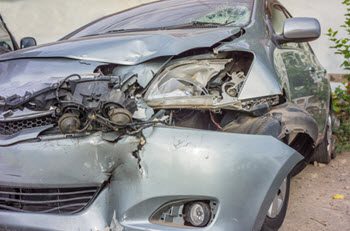Driver error causes roughly 95 percent of the car accidents in Florida, whether the cause is direct, such as running a stop light, or indirect, such as failing to slow down sufficiently on a wet road. Moreover, sometimes the error is a simple mistake and sometimes the error is negligence. Victims may obtain damages only in the latter instance. Typically, the jury draws the line between mistake and negligence. Depending on the cause, sometimes that line is not always easy to find in a vehicle collision.
Alcohol/Substance Impairment
In Florida, it is legal for most people to drink alcohol, some people to smoke marijuana, and everyone to take their prescribed medications, even if these medicines are powerful opioid painkillers. However, it is illegal for everyone to drive while under the influence of these legal substances. In civil court, that means impaired drivers are usually negligent as a matter of law, because of the negligence per se rule.
Even a Florida driver who was not criminally intoxicated may be legally impaired, because one drink or pill is enough to cause such impairment. Therefore, these individuals breach the duty of reasonable care and are responsible for damages.
Speed
While substance impairment is almost always the primary contributing cause of a Florida car crash, excessive velocity is different. If a tortfeasor is travelling only one or two MPH above the speed limit, a jury may not conclude that the speed substantially contributed to the crash. But if the tortfeasor was going faster than that, or if the road was slick, a jury may reach the opposite conclusion.
Speed is also a factor in the severity of damages, especially in pedestrian-auto collisions. Most pedestrians are not seriously injured if the impact speed is below 20MPH, but the serious injury rate multiplies to 90 percent at 45MPH.
Fatigue
Many people would never think about driving drunk or impaired but have no second thoughts about driving when they are fatigued. Yet driving while intoxicated and driving while fatigued are similar in two key respects.
- Drivers make a conscious decision to operate motor vehicles after they feel the effects of alcohol or drugs, just like drivers make a conscious decision to drive even though they are dangerously drowsy.
- Alcohol and fatigue both impair motor skills, affect judgement ability, and impair concentration. Driving after eighteen hours without sleep is like driving with a .08 BAC, which is above the legal limit in Florida.
Because of the conscious nature of this negligence, additional punitive damages may be available in both drunk and drowsy driving cases, especially if the tortfeasor was dangerously impaired (perhaps three times the legal limit or twenty-four hours without sleep).
Distraction
Lack of concentration goes back to the “maybe or maybe not” questions addressed in speed-related crashes. While talking to a passenger or gazing out the window are technically forms of distracted driving, a jury may not conclude that such behavior substantially caused the crash. On the other hand, behavior like using a cellphone or arguing with a passenger nearly always leads to a conclusion of negligence.
Contact Tenacious Attorneys
Car crash victims are usually entitled to significant compensation. For a free consultation with an experienced personal injury lawyer in Brandon, contact Reed & Reed. We have four area offices (St. Petersburg, Lakeland, Tampa, and Clearwater).
Resource:
cyberlaw.stanford.edu/blog/2013/12/human-error-cause-vehicle-crashes




